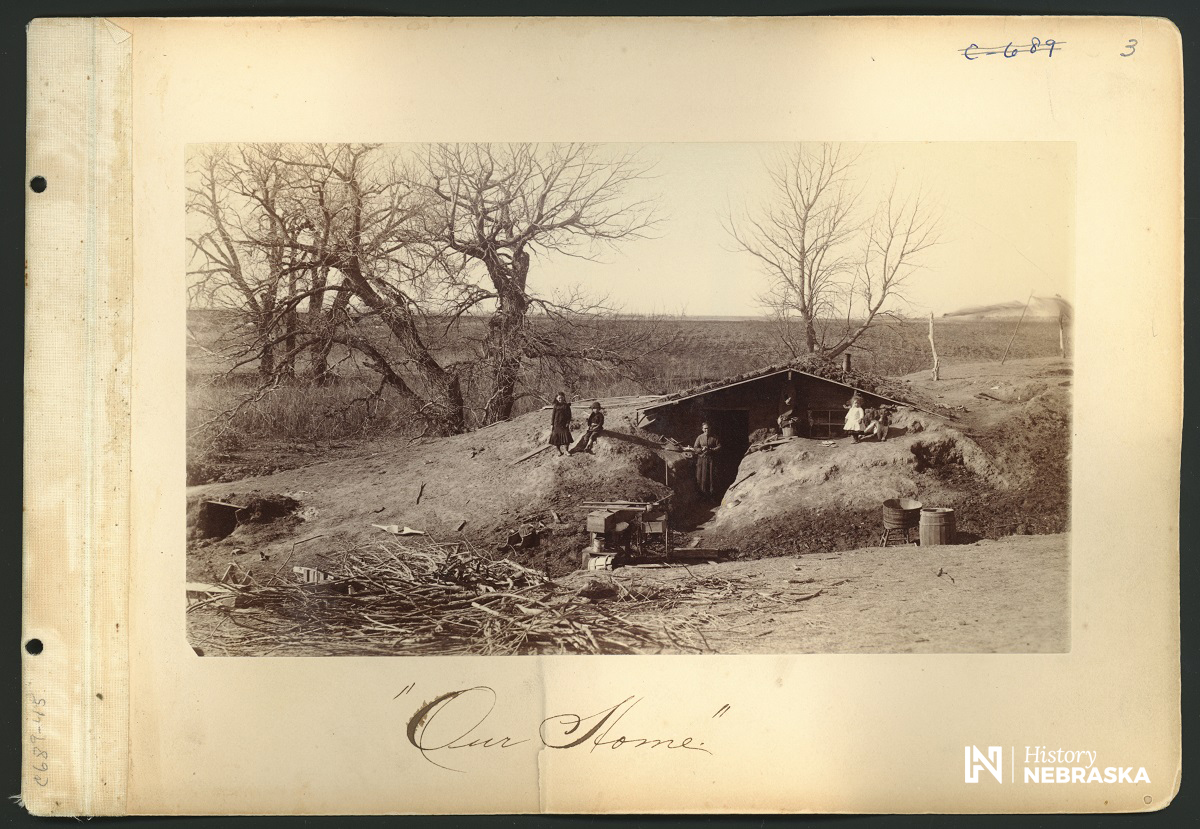Thanksgiving in 1896 was celebrated on November 26, and editor F. M. Kimmell of the McCook Tribune took advantage of the holiday to reflect on Red Willow County’s recent past.

An unidentified family in front of their dugout near McCook, Red Willow County, about 1890. RG3464.PH-45.
Thanksgiving in 1896 was celebrated on November 26, and editor F. M. Kimmell of the McCook Tribune took advantage of the holiday to reflect on Red Willow County’s recent past. “I wonder if any one has thought of this month being the twenty-fifth anniversary of the first settling of the county,” he wrote in the Tribune on November 27, 1896. “The first Thanksgiving dinner was eaten in camp near the mouth of Red Willow creek, and in some respects was the most unique Thanksgiving dinner ever eaten. The eleven men who represented ‘The Republican Valley Land and Townsite company,’ had reached their destination [starting from Nebraska City] the latter part of November, 1871, and after locating the Red Willow townsite and their respective claims, announced their readiness to return. “Two of the company kept in camp by allotted duties, had no opportunity of attending to individual interests, and looked upon the proceedings as being extremely selfish and unjust, and so pronounced it in vigorous language.
The usual way of eating was in regular camp style, each as he pleased, but in deference to the day, this dinner must be somewhat ceremonious. The tin plates were arranged as on a table and all sat around, except the two, who were not yet in a thankful frame of mind, and while a blessing was asked, one of them, in an aside, muttered quite sulphurous words. “After while, matters were so adjusted that the two shared in advantages taken by the others, and the lurid atmosphere cleared. Buffalo meat, wild turkey and prairie chicken were eaten with the regulation camp fare, among which was the inevitable flapjacks and syrup. It was too cold for the syrup to run, so it was cut off in chunks and lengths as it pressed through the bung hole of the keg. On occasion, one would become impatient for his sweet morsel, and reach over another to secure the piece for which the first was waiting, when exhibition of temper and ready use of strong words followed.” Kimmell went on to briefly highlight county history since that first Thanksgiving in 1871: “Lawlessness, peculiar to frontier days, has been but little known. In one locality, some later comers, considering it non-western not to have something wild and woolly, organized a secret ‘vigilance committee,’ which would have charge of public morals and possible horse thieves, but it died, at birth, from an overweight of bombast. Two mysterious murders are on record. Two county seat fights have brought the county into prominence. . . . We have reached the end of the twenty-fifth installment and wait and wonder what next?”




